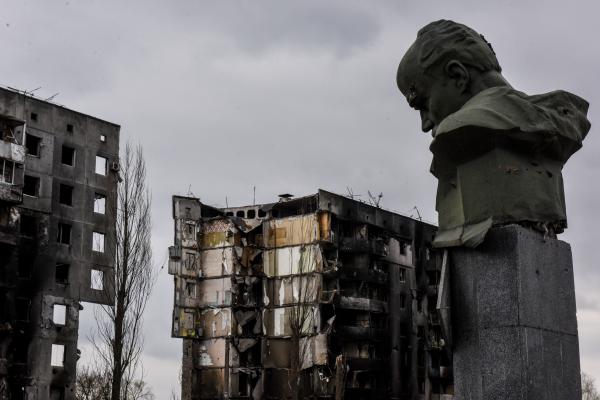
The Future of SEEES Expertise: How Can We Anticipate Tomorrow’s Differences? is the sixth and the last panel of the Decolonization in Focus Series.
MODERATOR:
- Juliet Johnson, Professor of Political Science, McGill University, President, Association for Slavic, East European, and Eurasian Studies
SPEAKERS:
- Ilya Gerasimov, Executive Director, Ab Imperio Quarterly, University of Illinois, Chicago
- Ararat Osipian, Founding Fellow, New University in Exile Consortium, New York
- Serhy Yekelchyk, Professor of Germanic and Slavic Studies, University of Victoria
The Russian war in Ukraine has had innumerable impacts, from personal to political, local, national, and global. One of the many sea changes wrought by the war has been the reckoning within Slavic/Russian & Eurasian Studies over the outsized role Russia has played and continues to play in the field and what could and should be done about it. The invited panelists in this series will consider the relationships of power that have long dominated the region, how they have impacted the field of study, and what, if anything, could and should be done about it.
The series has six wide-ranging panels featuring speakers from various disciplines and institutions. Panelists and participants will be encouraged to consider why decolonizing Russian & Eurasian studies matters, how to implement concrete change in their classrooms, and how to conceive of the future of expertise within the field. All sessions will be convened using Zoom, live-streamed via YouTube, and recorded to be made available for later viewing.
Sponsorship
Co-Sponsors: This series was developed and executed by the Center for Russian, East European, and Eurasian Studies at the University of Pittsburgh and the Davis Center for Russian and Eurasian Studies at Harvard University, with support from the Association for Slavic, East European & Eurasian Studies.
The following centers provided additional financial support:
- Center for East European and Russian/Eurasian Studies, University of Chicago
- Center for Russia, East Europe, and Central Asia, University of Wisconsin-Madison
- Center for Russian, East European, and Eurasian Studies, University of Kansas
- Center for Russian, East European, and Eurasian Studies, University of Michigan
- Center for Russian, East European, and Eurasian Studies, University of Texas at Austin
- Center for Slavic, East European, and Eurasian Studies, Ohio State University
- Center for Slavic, Eurasian and East European Studies, UNC-Chapel Hill
- Inner Asian and Uralic National Resource Center, Indiana University, Bloomington
- Institute of Slavic, East European, and Eurasian Studies, University of California, Berkeley
- Robert F. Byrnes Russian and East European Institute, Indiana University, Bloomington
